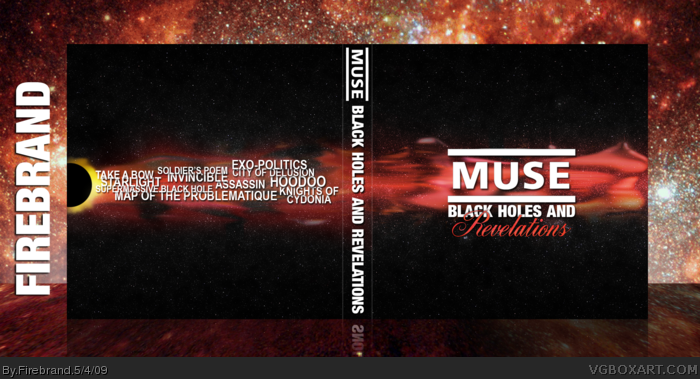


It is one of those that you need to go to one of their concerts before you die just because how incredible the experience would be.

Muse is one of my favourite bands, at least their early period including The Resistance. Unfortunately, for me, this is the last great Muse album, and that's what makes it more bitter than sweet. I enjoy (my memories of) the cyber-machinegun fuzz-n-whammy guitar riffs, distorted basslines, insanely produced vocals, guitar-keyboard lines. Sorry, Muse.ĭon't get me wrong, I'm still super grateful to Muse. Pretty stupid? Naive? Overly pompous? Well, probably everything together, and I don't want to listen to it anymore. Is it because this album foreshadowed what Muse was to become in a decade? Probably, and that's key to my relationship with the band: Muse music (sorry for the awful wordplay) appeals to teenage angst and frustration and high hopes I experienced on par with all the other 14-year olds who did not get the lyrics, but in retrospect, the songs appear. The point is – Muse is a super important band to me that has largely introduced me to heavier music, and it's sad that 10+ years after I heard this album for the first time, I don't like it as much as I used to. I still wonder why the metalhead girl who all the guys were into, for some reason, did not like its fuzz-driven riff. I remember when I first heard "Darkshines" and went bizarre playing it, on repeat, showing it to everyone around. Muse was the first band I discovered on my own, and I recommended it to all my friends. As of 2018, Black Holes and Revelations has sold over 4.5 million copies worldwide, making it the band's second most successful album behind The Resistance. Singles "Supermassive Black Hole" and "Knights of Cydonia" were both UK top-10 hits, while "Starlight", "Map of the Problematique", and "Invincible" all charted within the top 25. It was later certified triple platinum in the UK and platinum in the US. The album entered the charts at number one in five countries, including the United Kingdom, and in the top 10 in several other countries. It received a Mercury Prize nomination and later appeared in the 2007 version of 1001 Albums You Must Hear Before You Die. Like their previous albums, it features political and dystopian undertones, with lyrics covering topics such as political corruption, alien invasion, revolution and New World Order conspiracies, as well as more conventional love songs.īlack Holes and Revelations received positive reviews and appeared on many year-end lists. It saw a change in style for Muse, with influences including Depeche Mode, Millionaire, Lightning Bolt, Sly and the Family Stone, and music from southern Italy. Muse recorded Black Holes and Revelations over four months in New York and southern France with producer Rich Costey. It was released on 3 July 2006 through Muse's Helium-3 imprint and Warner Bros. Black Holes and Revelations is the fourth studio album by the English rock band Muse.


 0 kommentar(er)
0 kommentar(er)
